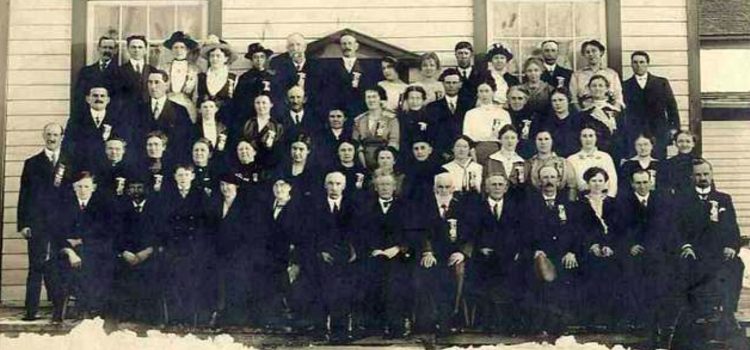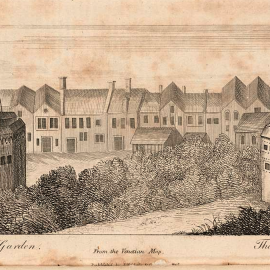

This article is an excerpt from the Shortform book guide to "Grant" by Ron Chernow. Shortform has the world's best summaries and analyses of books you should be reading.
Like this article? Sign up for a free trial here.
Who were the Sons of Temperance? How did the Sons of Temperance help Ulysses S. Grant with his alcohol problem?
Ulysses S. Grant dealt with unhealthy alcohol use throughout his life. He eventually joined the Sons of Temperance, a national brotherhood that took a vow of sobriety.
Check out how joining the Sons of Temperance affected Grant.
Grant’s Recognition of His Addiction
Although Grant’s unhealthy alcohol use had debilitating effects, Chernow argues that Grant wasn’t the passive victim of his addiction, but actively recognized it and fought against it. To show as much, Chernow points to Grant’s early membership in temperance movements and his later reliance on his aide in the Civil War, John Rawlins, to enforce his sobriety pledge.
As Chernow relates, Grant joined the Sons of Temperance—a national brotherhood advocating abstinence from alcohol—in the late 1840s, even organizing his own division in Sackets Harbor, where he was stationed. In addition to taking a vow of sobriety, Grant’s membership required him to wear a white sash publicly showing his association with the temperance movement. According to an interview with a friend, Grant joined the Sons of Temperance because he was convinced that abstinence was the only protection from his tendency to misuse alcohol.
(Shortform note: The US temperance movement in which Grant participated was driven heavily by women, who recognized the role that alcohol misuse played in contributing to domestic violence. And although women had little political capital at the time, their temperance movement made political waves by the late 1830s, when they unsuccessfully advocated for a nationwide prohibition of alcohol.)
In addition to joining the temperance movement as a young soldier, Grant also recognized his struggles with unhealthy alcohol use as a colonel at the beginning of the Civil War. Chernow writes that in 1861, Grant appointed John Rawlins—a steadfast advocate of temperance—as his chief of staff, and allowed Rawlins to enforce Grant’s vow of sobriety until the war ended. By making this pledge to Rawlins, Grant showed a willingness to confront his alcohol misuse rather than downplaying its significance.
(Shortform note: In 1861, Grant’s decision to enlist an accountability partner was perhaps the best available strategy for addressing his tendency toward alcohol misuse—the first alcohol misuse support group, Alcoholics Anonymous, wasn’t founded until 1935, and experts note that the US military first implemented programs to prevent and detect alcohol misuse in the 1980s, over a century after Grant served in the Civil War.)
Grant’s Relapses Throughout the Civil War
Nonetheless, Chernow contends that Grant struggled to keep his vow to Rawlins during the Civil War. For example, following a key victory in the 1862 Battle of Iuka, Grant allegedly binge drank in St. Louis while outside of Rawlins’s supervision. In a similar vein, Chernow points out that per correspondence from Rawlins himself, Grant indulged in a drinking episode following the 1864 Battle of Cold Harbor, in which Grant’s troops suffered tremendous losses attempting a frontal assault on Robert E. Lee’s army.
(Shortform note: Grant’s experience dealing with occasional relapses is common among people with AUD. According to experts, approximately 70% of individuals dealing with alcohol abuse relapse at some point, although the rate of relapses decreases with each year of sobriety. For example, about 30% of people with AUD relapse in their first year, 20% in their second, but only 10% relapse in years three through five of sobriety.)
However, Chernow notes that both of these instances reveal a general theme: Grant only drank in times of relative peace, never during the heat of battle. So, although Grant occasionally succumbed to unhealthy alcohol use in peacetime, he maintained enough self-control to avoid drinking when his responsibilities were greatest.
(Shortform note: Grant’s ability to restrict his drinking episodes to peacetime suggests he may have been what’s colloquially referred to as a high-functioning alcoholic—someone who, despite struggling with alcohol abuse, is nonetheless able to perform daily tasks successfully. However, experts warn that because high-functioning alcoholics are less likely to display external symptoms of alcohol abuse, they often fail to receive the treatment they need.)

———End of Preview———
Like what you just read? Read the rest of the world's best book summary and analysis of Ron Chernow's "Grant" at Shortform.
Here's what you'll find in our full Grant summary:
- A biography of Ulysses S. Grant that paints him in a new light
- Grant's role in the Civil War and as president of the United States
- How Grant fought valiantly against alcohol addiction






